2016 Lindback Awards for Distinguished Teaching
Lindback Awards for Distinguished Teaching
Since 1961, Lindback Awards—for members of Penn’s Standing Faculty—have been a springtime tradition at Penn. The Lindback Awards for Distinguished Teaching at the University of Pennsylvania were established in 1961 with the help of the Christian R. and Mary F. Lindback Foundation.
Below are profiles and excerpts from letters of recommendation for this year’s winners.
For prior winners, see http://www.archives.upenn.edu/people/notables/awards/lindback.html
Health Schools
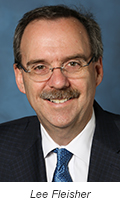 Lee A. Fleisher, Robert Dunning Dripps Professor of Anesthesia in the Perelman School of Medicine, has taught at Penn since 2004. A physician with “an inherent gift of being able to identify other people’s strengths and what can make them successful in life and work,” Dr. Fleisher “leads by example, exemplifying professionalism in every way.” A former student, now a colleague, marvels that he has been “the keynote speaker at most of the major meetings I have participated in for the last eight years.” Current and former students and colleagues alike note that he demonstrates on a daily basis that “in order to become a good doctor, one must strive to be a good person.” With teaching evaluations consistently describing him as an educator who “exceeds expectations,” Dr. Fleisher is also a valued department chair and a transformational leader who “truly cares about the professional advancement” of faculty, residents and staff, thus “ensuring the future of the department.” Many make special mention of his “teaching the art and specialty of anesthesia” through “numerous books, papers, talks and lectures” and that, through his “generosity of spirit,” he is nothing less than the “example of the Golden Rule: That we are here to care not just for the patient, but for each other.”
Lee A. Fleisher, Robert Dunning Dripps Professor of Anesthesia in the Perelman School of Medicine, has taught at Penn since 2004. A physician with “an inherent gift of being able to identify other people’s strengths and what can make them successful in life and work,” Dr. Fleisher “leads by example, exemplifying professionalism in every way.” A former student, now a colleague, marvels that he has been “the keynote speaker at most of the major meetings I have participated in for the last eight years.” Current and former students and colleagues alike note that he demonstrates on a daily basis that “in order to become a good doctor, one must strive to be a good person.” With teaching evaluations consistently describing him as an educator who “exceeds expectations,” Dr. Fleisher is also a valued department chair and a transformational leader who “truly cares about the professional advancement” of faculty, residents and staff, thus “ensuring the future of the department.” Many make special mention of his “teaching the art and specialty of anesthesia” through “numerous books, papers, talks and lectures” and that, through his “generosity of spirit,” he is nothing less than the “example of the Golden Rule: That we are here to care not just for the patient, but for each other.”
 Ellen J. Kim, Sandra J. Lazarus Associate Professor of Dermatology in the Perelman School of Medicine, has taught at Penn since 2003. For “one of dermatology’s leaders both inside and outside Penn,” colleagues and students have nothing but praise. Of her 17 resident evaluators, “all 17 scored her a perfect ‘5’ in all categories of the evaluation,” marvels a colleague. This “true role model for all professional women,” says a former student, “spends so much time mentoring residents and medical students, one would guess it was her sole full-time job.” Many students of this “master clinician” describe a “consummate physician” who they “strive to emulate” on a daily basis. A former student notes that Dr. Kim “influenced my professional development at every level” and is widely known to be “extremely approachable on issues related to work life balance.” One former student, now a colleague, notes that “Dr. Kim takes time to explain the rationale behind her management and therapeutic decisions” and exemplifies “everything an institution could want” from an academic clinician. In the words of one colleague, “her patients are grateful for her care,” while students and colleagues consider it “a privilege to work with her.”
Ellen J. Kim, Sandra J. Lazarus Associate Professor of Dermatology in the Perelman School of Medicine, has taught at Penn since 2003. For “one of dermatology’s leaders both inside and outside Penn,” colleagues and students have nothing but praise. Of her 17 resident evaluators, “all 17 scored her a perfect ‘5’ in all categories of the evaluation,” marvels a colleague. This “true role model for all professional women,” says a former student, “spends so much time mentoring residents and medical students, one would guess it was her sole full-time job.” Many students of this “master clinician” describe a “consummate physician” who they “strive to emulate” on a daily basis. A former student notes that Dr. Kim “influenced my professional development at every level” and is widely known to be “extremely approachable on issues related to work life balance.” One former student, now a colleague, notes that “Dr. Kim takes time to explain the rationale behind her management and therapeutic decisions” and exemplifies “everything an institution could want” from an academic clinician. In the words of one colleague, “her patients are grateful for her care,” while students and colleagues consider it “a privilege to work with her.”
 Robert P. Ricciardi, professor of microbiology in the School of Dental Medicine, has taught at Penn since 1981. An educator with “unparalleled teaching skills,” says a colleague, Dr. Ricciardi is well-loved by students “and for all the right reasons: his vigor, rigor and clarity of thought, fairness and ability to convey the essence of this science.” A nationally recognized expert in virology, he is “even-handed, principled and compassionate” and, as chair of the Committee for Student Advancement for the last 20 years, he “understands some of the struggles that our students may face.” Still, notes one admirer, “Rob is a demanding educator, and pushes students to understand both basic and clinical virology—he gives no quarter.” A student marvels at his “unparalleled teaching skills,” while another adds that he is “one of the best professors at this school, without a doubt.” A third student says that he “makes the topics relevant to real life,” while at the same time being “funny, and underrated as a comedian.” An award-winner within the School for his graduate teaching, he has “brought his numerous skills to bear in teaching basic virology to novice dental students from the standpoint of a superb and skilled researcher.” This award, says a colleague, is “long overdue” for a “star educator and researcher.”
Robert P. Ricciardi, professor of microbiology in the School of Dental Medicine, has taught at Penn since 1981. An educator with “unparalleled teaching skills,” says a colleague, Dr. Ricciardi is well-loved by students “and for all the right reasons: his vigor, rigor and clarity of thought, fairness and ability to convey the essence of this science.” A nationally recognized expert in virology, he is “even-handed, principled and compassionate” and, as chair of the Committee for Student Advancement for the last 20 years, he “understands some of the struggles that our students may face.” Still, notes one admirer, “Rob is a demanding educator, and pushes students to understand both basic and clinical virology—he gives no quarter.” A student marvels at his “unparalleled teaching skills,” while another adds that he is “one of the best professors at this school, without a doubt.” A third student says that he “makes the topics relevant to real life,” while at the same time being “funny, and underrated as a comedian.” An award-winner within the School for his graduate teaching, he has “brought his numerous skills to bear in teaching basic virology to novice dental students from the standpoint of a superb and skilled researcher.” This award, says a colleague, is “long overdue” for a “star educator and researcher.”
 Billy I. Smith, associate professor of clinical medicine, field service, in the School of Veterinary Medicine, has taught at Penn since 1998. From this “inspiring” professor’s “dynamic style of classroom teaching” to his “pick-up basketball games,” students and colleagues describe an educator who is as comfortable “out in the field” as in the lecture hall. A letter signed by numerous current students praises him as a teacher who motivates them to be “resourceful, and develop ideas based on original and unconventional approaches” to bovine care. Instructor evaluations conclude that this “super knowledgeable“ teacher is “great, as usual” and “fun to be around on the farm.” Another former student, now back at Penn due primarily to Dr. Smith’s mentorship and “unabashed enthusiasm,” adds that his lectures were “truly a joy to attend,” while another notes that seats would quickly fill with vet students “enchanted” in a ready-to-learn excitement “unique to Dr. Smith.” A former student, now a colleague, adds that “Billy Smith is one of the greatest and most influential teachers I have ever had,” and a second echoes this sentiment: “he personifies the prototypical triple threat: stellar teacher, researcher and clinician.”
Billy I. Smith, associate professor of clinical medicine, field service, in the School of Veterinary Medicine, has taught at Penn since 1998. From this “inspiring” professor’s “dynamic style of classroom teaching” to his “pick-up basketball games,” students and colleagues describe an educator who is as comfortable “out in the field” as in the lecture hall. A letter signed by numerous current students praises him as a teacher who motivates them to be “resourceful, and develop ideas based on original and unconventional approaches” to bovine care. Instructor evaluations conclude that this “super knowledgeable“ teacher is “great, as usual” and “fun to be around on the farm.” Another former student, now back at Penn due primarily to Dr. Smith’s mentorship and “unabashed enthusiasm,” adds that his lectures were “truly a joy to attend,” while another notes that seats would quickly fill with vet students “enchanted” in a ready-to-learn excitement “unique to Dr. Smith.” A former student, now a colleague, adds that “Billy Smith is one of the greatest and most influential teachers I have ever had,” and a second echoes this sentiment: “he personifies the prototypical triple threat: stellar teacher, researcher and clinician.”
Non-Health Schools
 Karen Detlefsen, associate professor of philosophy and education in the School of Arts & Sciences, has taught at Penn since 2001. This leader of an “innovative, internationally influential research program,” says a colleague, is also widely credited with being a “teaching role model.” Above all, in her Integrated Studies and Academically Based Community Service courses, Dr. Detlefsen is the “picture of a teacher whose influence extends far beyond the classroom.” Many students agree that, even though she “teaches complicated material at a high level,” she remains committed to making the subject matter “accessible and interesting,” as well as providing “the best philosophy diagrams.” A current graduate student is among many who cite an educator and mentor who is “committed to her students’ professional development” and who consistently collaborates, creating workshops that have yielded published papers and conference presentations from her students. A former student, now a colleague, still marvels at her uncanny ability to “manage discussions almost invisibly” yet still cover “precisely the material she set out to cover.” As someone who teaches her students how to think, says a colleague, she is committed to teaching that “changes lives. Her teaching is intellectually demanding, unusually coherent and permanent in its effect.”
Karen Detlefsen, associate professor of philosophy and education in the School of Arts & Sciences, has taught at Penn since 2001. This leader of an “innovative, internationally influential research program,” says a colleague, is also widely credited with being a “teaching role model.” Above all, in her Integrated Studies and Academically Based Community Service courses, Dr. Detlefsen is the “picture of a teacher whose influence extends far beyond the classroom.” Many students agree that, even though she “teaches complicated material at a high level,” she remains committed to making the subject matter “accessible and interesting,” as well as providing “the best philosophy diagrams.” A current graduate student is among many who cite an educator and mentor who is “committed to her students’ professional development” and who consistently collaborates, creating workshops that have yielded published papers and conference presentations from her students. A former student, now a colleague, still marvels at her uncanny ability to “manage discussions almost invisibly” yet still cover “precisely the material she set out to cover.” As someone who teaches her students how to think, says a colleague, she is committed to teaching that “changes lives. Her teaching is intellectually demanding, unusually coherent and permanent in its effect.”
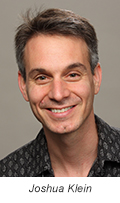 Joshua R. Klein, professor of physics in the School of Arts & Sciences, has taught at Penn since 1999. Colleagues and students alike use terms like “devoted” and “inspiring” to describe this “tremendous mentor” who—even with his own office and lab space—“spends every possible minute in an open-plan environment,” teaching students how to be “effective collaborative physicists.” An admirer notes that, at conferences, he often meets colleagues deeply appreciative of working with those “trained by Josh,” while a former student adds, “I learned more about teaching from Dr. Klein than physics—and I learned quite a lot of physics.” Another former student describes a teacher who not only “has a great love for physics” but also takes “great interest in his students’ success” through generous amounts of time and attention. A third student says that, “it was not only the subject that was fascinating, but how it was presented,” with Dr. Klein shedding “just enough light on the deep, intricate matters of the universe to inspire curiosity, while still maintaining the curriculum.” Summing up, a current graduate student says he has learned “how to think, how to succeed in collaborative work” and how to provide “helpful guidance to students while allowing the freedom for self-motivated discovery.”
Joshua R. Klein, professor of physics in the School of Arts & Sciences, has taught at Penn since 1999. Colleagues and students alike use terms like “devoted” and “inspiring” to describe this “tremendous mentor” who—even with his own office and lab space—“spends every possible minute in an open-plan environment,” teaching students how to be “effective collaborative physicists.” An admirer notes that, at conferences, he often meets colleagues deeply appreciative of working with those “trained by Josh,” while a former student adds, “I learned more about teaching from Dr. Klein than physics—and I learned quite a lot of physics.” Another former student describes a teacher who not only “has a great love for physics” but also takes “great interest in his students’ success” through generous amounts of time and attention. A third student says that, “it was not only the subject that was fascinating, but how it was presented,” with Dr. Klein shedding “just enough light on the deep, intricate matters of the universe to inspire curiosity, while still maintaining the curriculum.” Summing up, a current graduate student says he has learned “how to think, how to succeed in collaborative work” and how to provide “helpful guidance to students while allowing the freedom for self-motivated discovery.”
 Emily R. Steiner, professor of English in the School of Arts & Sciences, has taught at Penn since 1999. An educator who is a “scintillating presence and an irresistible force” in the teaching mission of the School of Arts & Sciences, Dr. Steiner is someone whose “infectious enthusiasm” touches students and colleagues alike. A current graduate student praises a mentor who “believes in teaching how scholars create their arguments” by examining both primary and scholarly texts. Another student remarks that this “indefatigable” scholar with a “sheer passion” for difficult medieval texts is “always willing to help, in any way she can.” One graduate student doesn’t mince words: “basically, I owe her my entire graduate career thus far,” adding that she is “both sympathetic and demanding, informative and thought provoking.” Students and colleagues alike make special note of her successful use of technology in her teaching and an ability to connect ancient manuscripts with current ideas. “Seemingly ‘outdated’ or ‘irrelevant’ topics came to immediate saliency,” says one student, while another adds that she is a “local hero” at Penn and one of the “brightest stars in the international community of medieval studies scholars.” In her course evaluations, says a colleague, “scores that many of us can only aspire to are almost ho-hum standard marks.”
Emily R. Steiner, professor of English in the School of Arts & Sciences, has taught at Penn since 1999. An educator who is a “scintillating presence and an irresistible force” in the teaching mission of the School of Arts & Sciences, Dr. Steiner is someone whose “infectious enthusiasm” touches students and colleagues alike. A current graduate student praises a mentor who “believes in teaching how scholars create their arguments” by examining both primary and scholarly texts. Another student remarks that this “indefatigable” scholar with a “sheer passion” for difficult medieval texts is “always willing to help, in any way she can.” One graduate student doesn’t mince words: “basically, I owe her my entire graduate career thus far,” adding that she is “both sympathetic and demanding, informative and thought provoking.” Students and colleagues alike make special note of her successful use of technology in her teaching and an ability to connect ancient manuscripts with current ideas. “Seemingly ‘outdated’ or ‘irrelevant’ topics came to immediate saliency,” says one student, while another adds that she is a “local hero” at Penn and one of the “brightest stars in the international community of medieval studies scholars.” In her course evaluations, says a colleague, “scores that many of us can only aspire to are almost ho-hum standard marks.”
 Daniel Swingley, professor of psychology in the School of Arts & Sciences, has taught at Penn since 2003. Numerous current and former students note his “tremendous positive impact” on both education and career, in particular his “enthusiasm for his work” and “genuine interest in the success of his students.” Many colleagues note the inherent challenges of teaching Introductory Psychology, a class so popular it is held in Irvine Auditorium. Yet even in this setting, students report being “engaged” by an educator who “exudes energy” and is “absolutely the boss!” PSYC001 “should be a requirement,” adds another admirer, while others say that he “challenged me to consider new ideas” and is never “an easy A.” In the closer confines of the Swingley Lab, students learn the “rigors of experimentation,” along with “highly technical skills,” presented by one of the “very top experimental phonologists in the field.” Former graduate students make note of an exceptional mentor who is “challenging but approachable” and came to dissertation committee meetings with both “creative ideas and constructive criticism.” A long-time colleague sums it up: this “remarkable man…adds considerable distinction to the Penn faculty as both scientist and educator.”
Daniel Swingley, professor of psychology in the School of Arts & Sciences, has taught at Penn since 2003. Numerous current and former students note his “tremendous positive impact” on both education and career, in particular his “enthusiasm for his work” and “genuine interest in the success of his students.” Many colleagues note the inherent challenges of teaching Introductory Psychology, a class so popular it is held in Irvine Auditorium. Yet even in this setting, students report being “engaged” by an educator who “exudes energy” and is “absolutely the boss!” PSYC001 “should be a requirement,” adds another admirer, while others say that he “challenged me to consider new ideas” and is never “an easy A.” In the closer confines of the Swingley Lab, students learn the “rigors of experimentation,” along with “highly technical skills,” presented by one of the “very top experimental phonologists in the field.” Former graduate students make note of an exceptional mentor who is “challenging but approachable” and came to dissertation committee meetings with both “creative ideas and constructive criticism.” A long-time colleague sums it up: this “remarkable man…adds considerable distinction to the Penn faculty as both scientist and educator.”

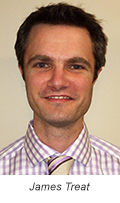 James Treat, associate professor of clinical pediatrics and dermatology in the Perelman School of Medicine, has taught at Penn since 2008. For this “true pediatric dermatology rock star,” the awards come “year after year,” testimonies to his ability to inspire medical students, residents and fellows. Dr. Treat distinguished himself as a teacher and mentor “even as a resident,” says a colleague, and he has “continuously set himself apart as an educator.” A former student marvels that he has “the remarkable ability to teach during a patient encounter” and adds that he was the “motivating factor” in her pursuit of a career in pediatric dermatology. Even with his vast body of knowledge and “incredible clinical acumen,” this voracious reader “never feels he knows enough” and is a “life-long learner.” Another former student adds that Dr. Treat’s “infectious enthusiasm” is matched only by his teaching creativity, including “innovative, computer-based tele-dermatology” that allowed students to practice their descriptive and diagnostic skills in a collaborative environment. Colleagues describe a “master” in the use of new technologies to assist learning. A former trainee who is now a colleague notes: “Jim never misses an opportunity to teach and help others develop into better doctors. The best I can do to thank him is to attempt to do the same.”
James Treat, associate professor of clinical pediatrics and dermatology in the Perelman School of Medicine, has taught at Penn since 2008. For this “true pediatric dermatology rock star,” the awards come “year after year,” testimonies to his ability to inspire medical students, residents and fellows. Dr. Treat distinguished himself as a teacher and mentor “even as a resident,” says a colleague, and he has “continuously set himself apart as an educator.” A former student marvels that he has “the remarkable ability to teach during a patient encounter” and adds that he was the “motivating factor” in her pursuit of a career in pediatric dermatology. Even with his vast body of knowledge and “incredible clinical acumen,” this voracious reader “never feels he knows enough” and is a “life-long learner.” Another former student adds that Dr. Treat’s “infectious enthusiasm” is matched only by his teaching creativity, including “innovative, computer-based tele-dermatology” that allowed students to practice their descriptive and diagnostic skills in a collaborative environment. Colleagues describe a “master” in the use of new technologies to assist learning. A former trainee who is now a colleague notes: “Jim never misses an opportunity to teach and help others develop into better doctors. The best I can do to thank him is to attempt to do the same.” Marcia Ferguson, senior lecturer and director of theatre arts in the School of Arts & Sciences, has taught at Penn since 1999. This “innovative director” is an “ever-evolving artist” in both the theater and the classroom. Her contributions to diverse student theatrical productions, notes a colleague, are “immeasurable” in terms of time, commitment and inspiration, while her “love of performance” and deep understanding of theater create a classroom that “somehow feels relaxed in the context of serious academic and performance challenge.” Numerous current and former students make note of an energetic presence who is simply “a joy to be around,” with a tangible “passion for education” that “helped us pave the way to the elation of storytelling.” One former student marvels at “the confidence she exuded,” a feeling that “made me want to strive to be a more intelligent and commanding woman.” A colleague adds that Dr. Ferguson offers a striking combination of “historical research, innovative theater craft and theoretical inquiry,” producing students who are “clearly inspired” by her work. Says one admirer: “I only hope that Penn continues to recruit and honor the Marcia Fergusons of the world.”
Marcia Ferguson, senior lecturer and director of theatre arts in the School of Arts & Sciences, has taught at Penn since 1999. This “innovative director” is an “ever-evolving artist” in both the theater and the classroom. Her contributions to diverse student theatrical productions, notes a colleague, are “immeasurable” in terms of time, commitment and inspiration, while her “love of performance” and deep understanding of theater create a classroom that “somehow feels relaxed in the context of serious academic and performance challenge.” Numerous current and former students make note of an energetic presence who is simply “a joy to be around,” with a tangible “passion for education” that “helped us pave the way to the elation of storytelling.” One former student marvels at “the confidence she exuded,” a feeling that “made me want to strive to be a more intelligent and commanding woman.” A colleague adds that Dr. Ferguson offers a striking combination of “historical research, innovative theater craft and theoretical inquiry,” producing students who are “clearly inspired” by her work. Says one admirer: “I only hope that Penn continues to recruit and honor the Marcia Fergusons of the world.”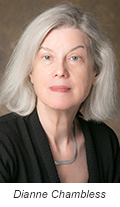 Dianne L. Chambless, professor of psychology in the School of Arts & Sciences, has taught at Penn since 2002. A clinical psychologist with a “national reputation,” Dr. Chambless is a mentor of unmatched quality who is “instrumental in shaping young scientists’ careers.” A colleague notes that she sets “very high expectations” for her students, yet balances this with a supportive approach that allows them to “develop and pursue their own interests.” A long-time colleague makes particular mention of Dr. Chambless’ support for women graduate students, noting her track record of helping to place women in academic positions and continuing to mentor them throughout their careers. A current graduate student adds that while Dr. Chambless is always available to answer questions if necessary, she also “skillfully guides me through the process of determining the answers for myself.” A former graduate student adds that she “cannot imagine a more worthy recipient” of this award, marveling at a mentor with professional integrity, rigorous teaching, and challenging and effective supervision. This student says that, for her, difficult situations are always addressed with a simple question: “WWDD—What Would Dianne Do?” Another former student agrees, noting that “I owe my success—as well as much of my life satisfaction—to Dianne.”
Dianne L. Chambless, professor of psychology in the School of Arts & Sciences, has taught at Penn since 2002. A clinical psychologist with a “national reputation,” Dr. Chambless is a mentor of unmatched quality who is “instrumental in shaping young scientists’ careers.” A colleague notes that she sets “very high expectations” for her students, yet balances this with a supportive approach that allows them to “develop and pursue their own interests.” A long-time colleague makes particular mention of Dr. Chambless’ support for women graduate students, noting her track record of helping to place women in academic positions and continuing to mentor them throughout their careers. A current graduate student adds that while Dr. Chambless is always available to answer questions if necessary, she also “skillfully guides me through the process of determining the answers for myself.” A former graduate student adds that she “cannot imagine a more worthy recipient” of this award, marveling at a mentor with professional integrity, rigorous teaching, and challenging and effective supervision. This student says that, for her, difficult situations are always addressed with a simple question: “WWDD—What Would Dianne Do?” Another former student agrees, noting that “I owe my success—as well as much of my life satisfaction—to Dianne.”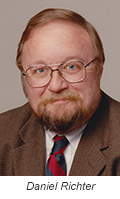 Daniel K. Richter, Roy F. and Jeannette P. Nichols Professor of American History in the School of Arts & Sciences, has taught at Penn since 1999. A former graduate student, now a colleague, describes Dr. Richter as the “single biggest contributor to my own career success,” and not simply because he “has a ‘big name’ in the field.” He makes himself “endlessly available to students” and is widely regarded as a mentor who “picks them up if they stumble, and pushes them to do their absolute best.” A current doctoral student adds that, “mentoring students is his top priority,” and his actions as teacher and advisor “have shown this to be true.” Another former student notes that Dr. Richter made his “intellectual growth a priority” and paid particular attention to his teaching assistants, using the TA program “as an opportunity to mentor graduate students in the art of teaching.” Colleagues make special note of his dedication of time and effort in helping students find teaching positions, with one remarking that Dr. Richter “invests in the serious business of placing students” and has a “great record of job placement.” Another colleague sums it up: Dan Richter not only trains students, but “socializes them within the field.” His leadership has “inspired me and many others” to emulate his example.
Daniel K. Richter, Roy F. and Jeannette P. Nichols Professor of American History in the School of Arts & Sciences, has taught at Penn since 1999. A former graduate student, now a colleague, describes Dr. Richter as the “single biggest contributor to my own career success,” and not simply because he “has a ‘big name’ in the field.” He makes himself “endlessly available to students” and is widely regarded as a mentor who “picks them up if they stumble, and pushes them to do their absolute best.” A current doctoral student adds that, “mentoring students is his top priority,” and his actions as teacher and advisor “have shown this to be true.” Another former student notes that Dr. Richter made his “intellectual growth a priority” and paid particular attention to his teaching assistants, using the TA program “as an opportunity to mentor graduate students in the art of teaching.” Colleagues make special note of his dedication of time and effort in helping students find teaching positions, with one remarking that Dr. Richter “invests in the serious business of placing students” and has a “great record of job placement.” Another colleague sums it up: Dan Richter not only trains students, but “socializes them within the field.” His leadership has “inspired me and many others” to emulate his example.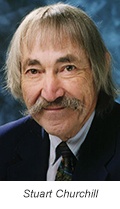 Stuart W. Churchill, the Carl V. S. Patterson Professor Emeritus of Chemical Engineering and professor emeritus of biomolecular engineering at Penn, died on March 24. He was 95 years old.
Stuart W. Churchill, the Carl V. S. Patterson Professor Emeritus of Chemical Engineering and professor emeritus of biomolecular engineering at Penn, died on March 24. He was 95 years old..jpg) Richard G. Lonsdorf, professor emeritus of psychiatry and law at the University of Pennsylvania Law School, died of congestive heart failure at the Waverly Heights retirement community in Gladwyne, Pennsylvania, on March 18. He was 93 years old.
Richard G. Lonsdorf, professor emeritus of psychiatry and law at the University of Pennsylvania Law School, died of congestive heart failure at the Waverly Heights retirement community in Gladwyne, Pennsylvania, on March 18. He was 93 years old.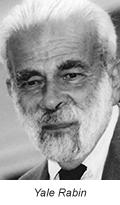 Yale Rabin, a former urban planner at Penn, died of heart failure at his home at Foulkeways Retirement Community in Gwynedd, Pennsylvania, on March 22. He was 88 years old.
Yale Rabin, a former urban planner at Penn, died of heart failure at his home at Foulkeways Retirement Community in Gwynedd, Pennsylvania, on March 22. He was 88 years old.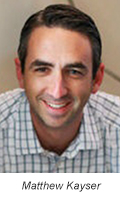 Matthew Kayser, assistant professor of psychiatry and neuroscience at Penn’s Perelman School of Medicine, is a practicing psychiatrist specializing in issues related to sleep and mental health. His lab studies how neural circuits give rise to complex behaviors and how dysfunction of neural processes can cause mental illness. His particular focus is in understanding how sleep—a highly conserved behavior whose core function remains a mystery—contributes to sculpting brain circuits during development and in other times of life.
Matthew Kayser, assistant professor of psychiatry and neuroscience at Penn’s Perelman School of Medicine, is a practicing psychiatrist specializing in issues related to sleep and mental health. His lab studies how neural circuits give rise to complex behaviors and how dysfunction of neural processes can cause mental illness. His particular focus is in understanding how sleep—a highly conserved behavior whose core function remains a mystery—contributes to sculpting brain circuits during development and in other times of life. Zongming Ma, assistant professor in the department of statistics at the Wharton School, conducts research on statistical analysis of high-dimensional and massive datasets, such as those arising from neuroscience and social networks. His research focuses on the core statistical problems that are common to these and other related application areas. By building the mathematical foundation for these problems, his goal is to gain sufficient theoretical insights to design practical algorithms for better data analysis.
Zongming Ma, assistant professor in the department of statistics at the Wharton School, conducts research on statistical analysis of high-dimensional and massive datasets, such as those arising from neuroscience and social networks. His research focuses on the core statistical problems that are common to these and other related application areas. By building the mathematical foundation for these problems, his goal is to gain sufficient theoretical insights to design practical algorithms for better data analysis.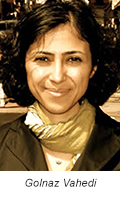 Golnaz Vahedi, assistant professor of genetics and a member of the Institute for Immunology at the Perelman School of Medicine, studies the biological circuits that underlie cellular processes in immune cells to uncover the molecular basis of major inherited diseases. Her lab works with vast quantities of rich, high-dimensional data that capture system-wide properties at molecular and cellular resolution in immune cells. A major focus of the Vahedi lab is to deconstruct gene-environment interactions in complex diseases, such as autoimmune disorders, by generating the epigenomic maps of immune cells and developing computational methods to integrate these maps with human genetics.
Golnaz Vahedi, assistant professor of genetics and a member of the Institute for Immunology at the Perelman School of Medicine, studies the biological circuits that underlie cellular processes in immune cells to uncover the molecular basis of major inherited diseases. Her lab works with vast quantities of rich, high-dimensional data that capture system-wide properties at molecular and cellular resolution in immune cells. A major focus of the Vahedi lab is to deconstruct gene-environment interactions in complex diseases, such as autoimmune disorders, by generating the epigenomic maps of immune cells and developing computational methods to integrate these maps with human genetics. The Penn Libraries is excited to announce the debut of the online home for their Holy Land Collections. The Holy Land Collections website features a wide range of special and general collections related to the Holy Land, including rare manuscripts, original archaeological artifacts, engraved maps and many other fascinating primary and secondary source materials.
The Penn Libraries is excited to announce the debut of the online home for their Holy Land Collections. The Holy Land Collections website features a wide range of special and general collections related to the Holy Land, including rare manuscripts, original archaeological artifacts, engraved maps and many other fascinating primary and secondary source materials.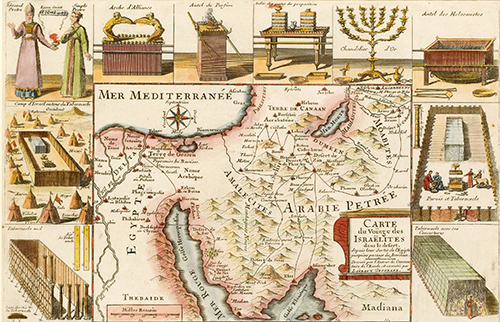 The Libraries’ Holy Land Collections also include the Paola and Bertrand Lazard Holy Land Print collections, including hundreds of early printed books, postcards, maps, drawings and watercolors. Recent acquisitions include the Moldovan Family Digital Holy Land Map Collection and the Zucker Holy Land Travel Manuscript.
The Libraries’ Holy Land Collections also include the Paola and Bertrand Lazard Holy Land Print collections, including hundreds of early printed books, postcards, maps, drawings and watercolors. Recent acquisitions include the Moldovan Family Digital Holy Land Map Collection and the Zucker Holy Land Travel Manuscript.
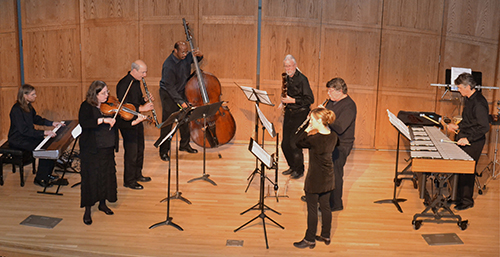 Relâche, Philadelphia’s renowned new music ensemble, presents American Experimental Masters: Ashley and Wolff, featuring guest baritone singer Thomas Buckner, on Sunday, April 10 at 3 p.m., in Widener Hall at the Penn Museum.
Relâche, Philadelphia’s renowned new music ensemble, presents American Experimental Masters: Ashley and Wolff, featuring guest baritone singer Thomas Buckner, on Sunday, April 10 at 3 p.m., in Widener Hall at the Penn Museum. This spring, the Morris Arboretum will once again host its annual Japanese Cherry Blossom Celebration, in partnership with the Subaru Cherry Blossom Festival of Greater Philadelphia. The Subaru Cherry Blossom Festival is an initiative of the Japan America Society of Greater Philadelphia with the goal of fostering a better understanding of the cultural, social and educational customs of Japan in the United States.
This spring, the Morris Arboretum will once again host its annual Japanese Cherry Blossom Celebration, in partnership with the Subaru Cherry Blossom Festival of Greater Philadelphia. The Subaru Cherry Blossom Festival is an initiative of the Japan America Society of Greater Philadelphia with the goal of fostering a better understanding of the cultural, social and educational customs of Japan in the United States.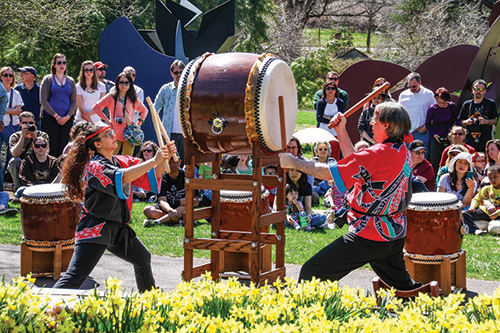 Kyo Daiko Drumming Crew, 10:30 a.m. and noon; HaHa Wall. Taiko drumming has been practiced in Japan for hundreds of years at festivals and battles and as a means of communication over long distances. A combination of choreography and drumming, taiko drumming is physically demanding and visually compelling. Kyo Daiko, under the sponsorship of Shofuso Japanese House and Garden, is a community-based taiko drumming group offering classes in the Wynnefield section of Philadelphia.
Kyo Daiko Drumming Crew, 10:30 a.m. and noon; HaHa Wall. Taiko drumming has been practiced in Japan for hundreds of years at festivals and battles and as a means of communication over long distances. A combination of choreography and drumming, taiko drumming is physically demanding and visually compelling. Kyo Daiko, under the sponsorship of Shofuso Japanese House and Garden, is a community-based taiko drumming group offering classes in the Wynnefield section of Philadelphia.  It’s easy to be inadvertently separated from your mobile device. Fortunately, there are features built into the most recent versions of several mobile operating systems that can help you determine the whereabouts of your missing device.
It’s easy to be inadvertently separated from your mobile device. Fortunately, there are features built into the most recent versions of several mobile operating systems that can help you determine the whereabouts of your missing device.